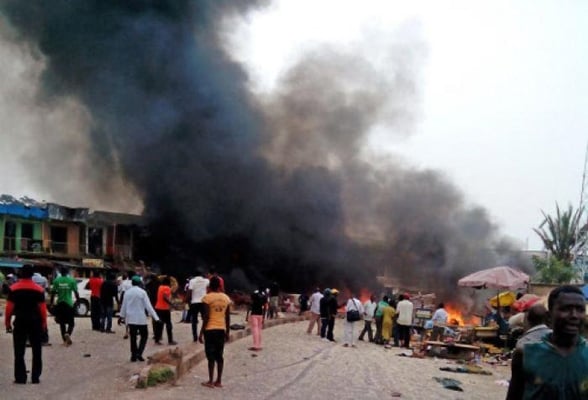The two blasts ripped through the town of Damboa in Borno state on Saturday evening targeting people returning from celebrating the Eid al-Fitr holiday, in an attack bearing all the hallmarks of Boko Haram.
Following the suicide bombings, the terrorists fired rocket-propelled grenades into the crowds that had gathered at the scene of the attacks, driving the number of casualties higher.
“There were two suicide attacks and rocket-propelled grenade explosions in Damboa last night which killed 31 people and left several others injured,” said militia leader Babakura Kolo.
Two suicide bombers detonated their explosives in Shuwari and nearby Abachari neighbourhoods in the town around 10:45 pm (21:45 GMT), killing six residents, said Kolo, speaking from the state capital Maiduguri, which is 88 kilometres from the town.
“No one needs to be told this is the work of Boko Haram,” Kolo told AFP.
A local government official, who spoke on the condition of anonymity, confirmed the death toll.
“The latest death toll is now 31 but it may increase because many among the injured may not survive,” said the official.
“Most of the casualties were from the rocket projectiles fired from outside the town minutes after two suicide bomber attacked,” he said.
The radical group has deployed suicide bombers, many of them young girls, in mosques, markets and camps housing people displaced by the nine-year insurgency which has devastated Nigeria’s northeast.
On May 1 at least 86 people were killed in twin suicide blasts targeting a mosque and a nearby market in the town of Mubi in neighbouring Adamawa state.
Nigerian President Muhammadu Buhari came into power in 2015 vowing to stamp out Boko Haram but the jihadists continue to stage frequent attacks, targeting both civilians and security forces.
The militants stormed the Government Girls Technical College in Dapchi on February 19, seizing over 100 schoolgirls in a carbon copy of the abduction in Chibok in 2014 that caused global outrage.
